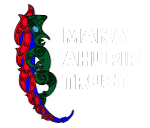Ka tangi aroha
Tangi maioha koutou i tu ki Te Pa Tuwatawata Ko Pakake Kokiri wairua ki te kahui Ariki
Piki mai kake mai, ngā karanga hapū o Ahuriri.
This year marks the 200 year anniversary of the Battle of Te Pakake, a pivotal moment in our region’s history that occurred in 1824. This significant conflict took place at a small pa situated on an island near present-day Napier, pitting the local Ngati Kahungunu and their allies against a formidable coalition of northern tribes including Waikato, Hauraki, Ngati Raukawa, Wairarapa, Tuwharetoa and Ngā Puhi.
The battle was part of a larger series of intertribal conflicts that reshaped the North Island’s political landscape in the early 19th century. It stemmed from earlier clashes, notably the Battle of Te Roto a Tara, and was fueled by the pursuit of utu (revenge) for fallen chiefs.
Despite initial resistance, Te Pakake fell to the invading force, resulting in significant loss of life and the capture of several prominent chiefs. The aftermath of this battle led to major population shifts, with many Ngati Kahungunu seeking refuge in the Ruahine mountains or at Nukutaurua on the Mahia Peninsula.
As we commemorate this event, we reflect on the complex history of our rohe, the resilience of our ancestors, and the peace that eventually emerged from this tumultuous period. The Battle of Te Pakake remains a poignant reminder of our shared past and the importance of understanding and honoring our history.
Ngā mihi mahana,
Mana Ahuriri Trust
